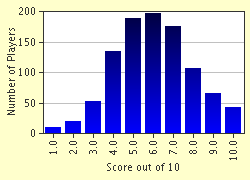Quiz Answer Key and Fun Facts
1. This man lived from 470 BCE to 399 BCE. He lived at the height of Athenian power. He spent his life asking questions and debating. He was sentenced to death because he debated the existence of the gods and goddesses. He chose death by poison, and drank hemlock.
2. One of the first mathematicians, he was from Miletus. He discovered five geometric theorems. His knowledge of geometry helped to improve navigation.
3. Socrates famous pupil, Plato, also changed the course of Greek civilization. He wrote the arguments Socrates took part in, but Plato also took the front seat when it came to his own theories. In 388 BCE, Plato opened an Academy where he taught philosophy and science. Which of his books was the first about political science?
4. This man is often considered the most famous Greek mathematician. He lived from 582 BCE to 500 BCE. By laying out pebbles in the sand, he studied the pattern of numbers.
5. The Greeks made significant discoveries in the field of astronomy. Which man formulated the view that the sun was the centre of the universe?
6. This man was a pupil of Plato's. He served as tutor to Alexander the Great for seven years. In 323 BCE, he established his own school called the Lyceum.
7. The Greek astronomer Hipparchus calculated the revolution period for the moon to go around the earth. How far off was he in his calculations?
8. This man lived from 460 BCE to 377 BCE. He was known as the father of medicine. His name even describes an oath that doctors still take today.
9. What mathematician wrote thirteen books on geometry in the Hellenistic age?
10. Archimedes (287 BCE-212 BCE) is most famous for his discovering pi. Another incident that he is noted for is running around the city screaming "Eureka! I've got it!" What solution did he find?
Source: Author
Priscilla9
This quiz was reviewed by FunTrivia editor
bloomsby before going online.
Any errors found in FunTrivia content are routinely corrected through our feedback system.


